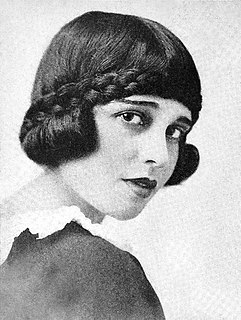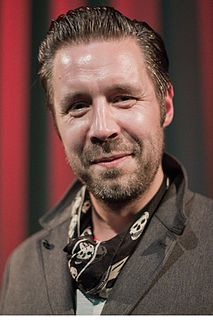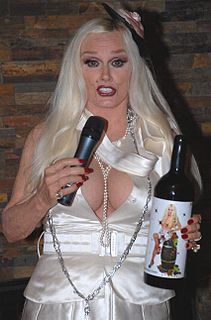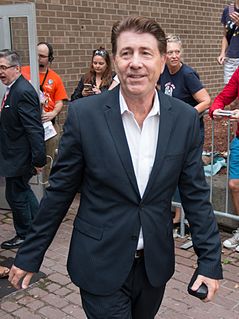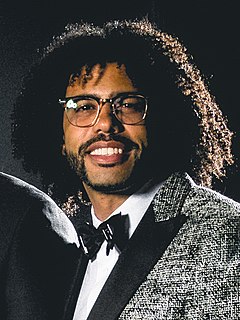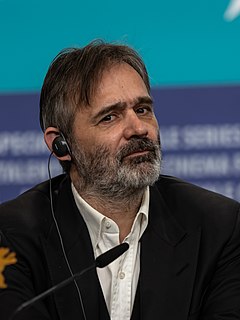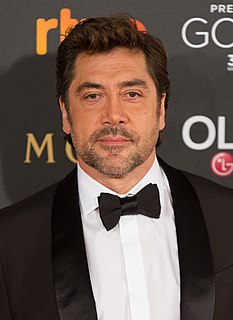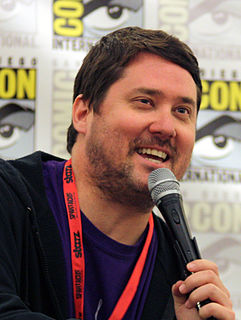A Quote by Anita Loos
When I was very young and first worked in Hollywood, the films had bred in me one sole ambition: to get away from them; to live inthe great world outside movies; to meet people who created their own situations through living them; who ad-libbed their own dialogue; whose jokes were not the contrivance of some gag writer.
Related Quotes
In terms of my career, it began in earnest when I was living in Boston. I started doing my own films, working initially as an editor and editing assistant - briefly - at WGBH, as an editor on other people's movies, trying to get some experience under my belt, but eventually just doing my own short films, doing them my way.
I worked with creative people who were very demanding of me, and they helped me reach performances that I never could have gotten on my own without being pushed and having trust in them. And so I know the best way to get the best performance of an actor, and that's not to coddle them or to baby them. It's to help them; it's to push them.
My children came out as individuals in their own right. They were not my products. They had their own characters and were very strong-minded. I gave them a lot of freedom when they were still very young. The one thing they got from me is morals. They would never betray anyone. They are really good people.
I'm not good at narrative; I'm really a gag writer, and that comes from being in the newspaper comic strip world for a while in college. What I do is I just write tons of jokes, then I sort them out in terms of quality and then pick the best of the jokes and then try to form them into a plot. If I get a good theme going, I feel lucky.
More and more, I play myself, as I get older. Even as a writer, I never got typecast. I've always bounced from project to project, or initiated my own things. I was never known as the guy who wrote romantic comedies or sci-fi, or whatever, but that's fun to me. The first two films I ever had made, as a writer, were both thrillers, which was great. There was nothing funny about either of them, or not intentionally. I actually love that.
I think it's important that when people are struggling, that you not run away from them if you love them. Kristen, I mean, I look at the room tonight, you know, Kristen Stewart and Claire Danes, Jennifer Lawrence, all these young women that I worked with who basically were child actors like I was a child actor. And then I feel very protective of them, because even though I think I have managed to get through the process relatively sanely, I have my scars, and I hope to be in some ways a member of their family that's out there protecting them.
At the beginning of the 20th century, before the migration began, 90 percent of all African-Americans were living in the South. By the end of the Great Migration, nearly half of them were living outside the South in the great cities of the North and West. So when this migration began, you had a really small number of people who were living in the North and they were surviving as porters or domestics or preachers - some had risen to levels of professional jobs - but they were, in some ways, protected because they were so small.
People talk about Hollywood as a myth, but in reality, when you make Icelandic movies and you want to get them distributed in the U.S., you're not really working with Hollywood. The movies I've been making, the first one I made, I made it with Working Title, but it was financed through Universal, so it became a Hollywood production.
My parents took me to that I think is just one of those near-perfect comedies is Young Frankenstein. Gene Wilder and Mel Brooks, they're at the height of their game. The two of them working together was amazing. Yeah, just a terrific story. You get emotionally involved. Jokes all the time, jokes that come from story. Like, they don't have to go wildly out of their way to make the jokes. It's a parody of Frankenstein movies, but also it stands as one of the great ones, one of the great Frankenstein movies.
